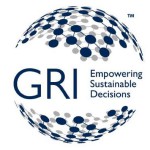
Investors and regulators are coming together to improve environmental, social, and governance standards in capital markets as a way to help identify growth opportunities, manage risks, and promote sustainability in developing countries.
Anthony Miller, coordinator of the United Nations’ Sustainable Stock Exchanges initiative, sits in his office in Geneva, peering into his Bloomberg terminal.
Tapping on his keyboard, he enters the names of leading emerging market firms. Significant data on their environmental, social, and governance (ESG) practices fills the screen, offering information on how each company ranks against recognized international sustainability benchmarks.
“When something like this pops up in the standard data sets, that tells me that sustainability investing is now mainstream,” says Miller. This is a far cry from how businesses used to operate. “We all used to say, ‘Wouldn’t it be great if…,’” adds Miller, who has been helping local capital markets and regulators in developing countries improve ESG reporting for 15 years. “Well, we’re getting there now. We have really made significant progress. But a lot more still needs to be done.”
In Tokyo, Hiro Mizuno, the Executive Managing Director and Chief Investment Officer of Japan’s $1.4 trillion Government Pension Investment Fund (GPIF), says the “to-do” list includes reminding governments that part of the responsibility for ESG reporting rests with them. Governments are not just policymakers, but “the biggest user of capital markets in the emerging markets” with the sovereign bonds they issue, Mizuno says. “Political or regulatory leadership of the governments [is] critical to promote systematic ESG reporting in those countries.”
Like Miller and Mizuno, industry leaders around the world agree that ESG data can create levels of trust that strengthen deep and liquid local capital markets. And that’s vital for a thriving private sector.



